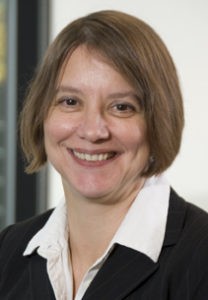If you look up my nickname, Becky, in the urban dictionary, you’ll find the top definition is “A Basic White Girl,” and that is not a compliment. I’m just glad for now that my real name isn’t “Karen” — a meme given in the news and on social media for those who call the cops on people of color being ordinary citizens.
But if I’m a Becky or a Karen, where do I fit in to the encounters of Jesus with women? What does Jesus have to say to me?
My attention is drawn to the encounter between Jesus and the woman from Tyre, the Syro-Phoenician woman with the possessed daughter. I typically have adopted the interpretive stance that sees God’s chosen people as the center of the story and all other peoples as “inferior.” In fact, I read as if I myself were one of the chosen people, one of the disciples, even, despite not being Jewish. But, really, I’m the gentile in this story.
“How often … I’ve prayed for peace but not for justice.”
This encounter takes place in Tyre, her turf. She is a Roman citizen. Her city has paved roads. She is likely to be carrying a sense of social superiority, even pride. She is so unlikely to learn from an itinerant Jewish carpenter, even one rumored to be a wonderworker. In fact, she is more like me — a privileged white American citizen — and Jesus is more like a recent immigrant, perhaps even a migrant worker with or without a green card. She uses a title of respect that she has heard others use but that means little to her to get Jesus’ attention so he will grant her desperate request. To her, Jesus is a means to an end.
His responses are recorded in different form in Matthew and Mark. In Matthew, he replies, “I was sent only to the lost sheep of the house of Israel.” Perhaps he even shouts this back to her. He confronts the ethnic and class issues directly. Why do you call me “Son of David,” why do you call me “Lord”? These titles mean nothing to you. They are signs to the house of Israel.
But he does stop walking, and she bows before him. The Greek word here contains in it the idea of a dog licking the master’s hand. Perhaps she is kissing his hand, perhaps she is crouched over his feet. She has not likely bowed before a Jew before. She is a Roman citizen, in a prosperous and vital center of trade and manufacturing, and he is a provincial manual laborer from an occupied country, not even a citizen. “Help me,” she says.
“There is enough goodness, enough mercy, for all, even the privileged.”
Jesus still confronts her: God sent me first to Israel, a people you feel yourself to be superior to, but a people God has called God’s children. You understand that it is inappropriate, it is not a beautiful thing to take what these children need (whom you care nothing for) and give it to the little dogs under the table, leaving the children hungry. I think these words sting her.
I’m imagining how often I, a white American, have insisted to Jesus that my needs are more important than anyone else’s, how I’ve prayed for peace but not for justice, how I have wanted God to be on my side in any conflict, how I have not wanted to notice the pain and alienation of my fellow Americans of color.
But she finds a loophole in this parable. She tells it again, from the dogs’ point of view. Her willingness to be counted among the little dogs, to have her status diminished, shows teachability. “Yes, Lord, but we both know that children drop food, and the little dogs scavenge. Let there be enough goodness, enough mercy, to feed my child, my dear daughter, to free her from being tormented by evil. Even the little dogs eat the crumbs.”
This woman, driven by desperation, accosts a socially insignificant itinerant laborer in public, despite her prejudices and her assurance of superiority. As Jesus often, and perhaps always, does, he pierces to her heart and requires her to accept his overturning of tables, even though he denies her any superiority.
There is enough goodness, enough mercy, for all, even the privileged; the dogs have a place in God’s house. And an honest conversation with Jesus helps us know our place.
Becky Ankeny lives in Newberg, Ore., and is a former professor at George Fox University. She is a Quaker and previously served as general superintendent of the Northwest Yearly Meeting of Friends. She taught at Westmont College from 1986 to 1988 before returning to her alma mater, George Fox, to work as a professor of English and as an administrator from 1988 to 2011.

